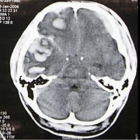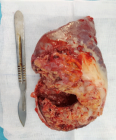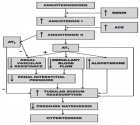Abstract
Research Article
SARS-CoV-2 infection does not affect ovarian reserve in women undergoing assisted reproduction
Mara Campitiello, María Cruz, Cristina González-Ravina, Vanessa Vergara, Alberto Pacheco, José Remohí and Antonio Requena Miranda*
Published: 07 March, 2023 | Volume 6 - Issue 1 | Pages: 021-025
Information regarding the effects of the novel coronavirus on human reproduction is currently limited. The objective of our work was to assess whether, in women who have passed the disease, there was a variation in the ovarian reserve through the determination of AMH levels. During May-June 2020, women performing an Assisted Reproductive treatment and who had a positive IgG for SARS-CoV-2 were included in the study; this group of women had a previous AMH determination of no more than 6 months. Women were stratified into two groups, according to their previous AMH levels: low responders (AMH<1 ng/ml) or normal-high responders (AMH ≥ 1 ng/ml) Statistical analyses were performed using the Statistical Package for Social Sciences 19.0 (IBM Corporation, Armonk, NY, USA). A total of 46 patients were included in the study; 16 women were diagnosed as having low ovarian reserve (AMH < 1 ng/ml), with an average age of 38.6 years, whereas 30 were classified as having normal ovarian reserve (AMH ≥ 1 ng/ml), with an average age of 34.7 years. Generally, the data show no variation in AMH levels before and after SARS-CoV-2 infection (1.73 ng/ml vs. 1.61 ng/ml, respectively). However, when we analyzed these differences according to the study groups, the results were consistent with the patient's ovarian status. It is possible to conclude that the fact of having passed the disease does not affect the ovarian reserve status but the degree of the variation of AMH levels depending on the patient was a low or high responder.
Read Full Article HTML DOI: 10.29328/journal.cjog.1001123 Cite this Article Read Full Article PDF
Keywords:
SARS-CoV-2; Antimüllerian hormone (AMH); Ovarian reserve; IgG seropositivity
References
- Segars J, Katler Q, McQueen DB, Kotlyar A, Glenn T, Knight Z, Feinberg EC, Taylor HS, Toner JP, Kawwass JF; American Society for Reproductive Medicine Coronavirus/COVID-19 Task Force. Prior and novel coronaviruses, Coronavirus Disease 2019 (COVID-19), and human reproduction: what is known? Fertil Steril. 2020 Jun;113(6):1140-1149. doi: 10.1016/j.fertnstert.2020.04.025. Epub 2020 Apr 16. PMID: 32482250; PMCID: PMC7161522.
- Guan WJ, Ni ZY, Hu Y, Liang WH, Ou CQ, He JX, Liu L, Shan H, Lei CL, Hui DSC, Du B, Li LJ, Zeng G, Yuen KY, Chen RC, Tang CL, Wang T, Chen PY, Xiang J, Li SY, Wang JL, Liang ZJ, Peng YX, Wei L, Liu Y, Hu YH, Peng P, Wang JM, Liu JY, Chen Z, Li G, Zheng ZJ, Qiu SQ, Luo J, Ye CJ, Zhu SY, Zhong NS; China Medical Treatment Expert Group for Covid-19. Clinical Characteristics of Coronavirus Disease 2019 in China. N Engl J Med. 2020 Apr 30;382(18):1708-1720. doi: 10.1056/NEJMoa2002032. Epub 2020 Feb 28. PMID: 32109013; PMCID: PMC7092819.
- Honorato-Sampaio K, Pereira VM, Santos RA, Reis AM. Evidence that angiotensin-(1-7) is an intermediate of gonadotrophin-induced oocyte maturation in the rat preovulatory follicle. Exp Physiol. 2012 May;97(5):642-50. doi: 10.1113/expphysiol.2011.061960. Epub 2012 Jan 13. PMID: 22247282.
- Jirge PR, Chougule SM, Keni A, Kumar S, Modi D. Latent genital tuberculosis adversely affects the ovarian reserve in infertile women. Hum Reprod. 2018; 33:1262-9.
- Devaux A, Soula V, Sifer C, Branger M, Naouri M, Porcher R, Poncelet C, Neuraz A, Alvarez S, Benifla JL, Madelenat P, Brun-Vezinet F, Feldmann G. Hepatitis C virus detection in follicular fluid and culture media from HCV+ women, and viral risk during IVF procedures. Hum Reprod. 2003 Nov;18(11):2342-9. doi: 10.1093/humrep/deg431. PMID: 14585885.
- Scherzer R, Bacchetti P, Messerlian G, Goderre J, Maki PM, Seifer DB, Anastos K, Karim R, Greenblatt RM. Impact of CD4+ lymphocytes and HIV infection on Anti-Müllerian Hormone levels in a large cohort of HIV-infected and HIV-uninfected women. Am J Reprod Immunol. 2015 Mar;73(3):273-84. doi: 10.1111/aji.12332. Epub 2014 Oct 23. PMID: 25339186; PMCID: PMC4323676.
- Wessman M, Korsholm AS, Bentzen JG, Andersen AN, Ahlström MG, Katzenstein TL, Weis N. Anti-müllerian hormone levels are reduced in women living with human immunodeficiency virus compared to control women: a case-control study from Copenhagen, Denmark. J Virus Erad. 2018 Apr 1;4(2):123-127. PMID: 29682306; PMCID: PMC5892676.
- Santulli P, de Villardi D, Gayet V, Lafay Pillet MC, Marcellin L, Blanchet V, Gonnot J, Dulioust E, Launay O, Chapron C. Decreased ovarian reserve in HIV-infected women. AIDS. 2016 Apr 24;30(7):1083-8. doi: 10.1097/QAD.0000000000001025. PMID: 27028143.
- Li K, Chen G, Hou H, Liao Q, Chen J, Bai H, Lee S, Wang C, Li H, Cheng L, Ai J. Analysis of sex hormones and menstruation in COVID-19 women of child-bearing age. Reprod Biomed Online. 2021 Jan;42(1):260-267. doi: 10.1016/j.rbmo.2020.09.020. Epub 2020 Sep 29. PMID: 33288478; PMCID: PMC7522626.
- Themmen AP. Anti-Müllerian hormone: its role in follicular growth initiation and survival and as an ovarian reserve marker. J Natl Cancer Inst Monogr. 2005;(34):18-21. doi: 10.1093/jncimonographs/lgi026. PMID: 15784815.
- Stanley KE, Thomas E, Leaver M, Wells D. Coronavirus disease-19 and fertility: viral host entry protein expression in male and female reproductive tissues. Fertil Steril. 2020 Jul;114(1):33-43. doi: 10.1016/j.fertnstert.2020.05.001. Epub 2020 May 8. PMID: 32622411; PMCID: PMC7205710.
- Rodriguez F, Cruz M, Requena A. Impact of parental chromosomal polymorphisms on the incidence of congenital anomalies and perinatal complications in a cohort of newborns conceived after ICSI + PGT-A. Reprod Biol Endocrinol. 2022 Sep 27;20(1):145. doi: 10.1186/s12958-022-01012-2. PMID: 36163174; PMCID: PMC9513861.
- Kolanska K, Hours A, Jonquière L, Mathieu d'Argent E, Dabi Y, Dupont C, Touboul C, Antoine JM, Chabbert-Buffet N, Daraï E. Mild COVID-19 infection does not alter the ovarian reserve in women treated with ART. Reprod Biomed Online. 2021 Dec;43(6):1117-1121. doi: 10.1016/j.rbmo.2021.09.001. Epub 2021 Sep 10. PMID: 34711516; PMCID: PMC8432972.
- Horowitz E, Mizrachi Y, Ganer Herman H, Oz Marcuschamer E, Shalev A, Farhi J, Barber E, Orna SH, Raziel A, Weissman A. The effect of SARS-CoV-2 mRNA vaccination on AMH concentrations in infertile women. Reprod Biomed Online. 2022 Oct;45(4):779-784. doi: 10.1016/j.rbmo.2022.06.015. Epub 2022 Jun 22. PMID: 35985956; PMCID: PMC9217631.
- Requena A, Vergara V, González-Ravina C, Ruiz ME, Cruz M. The type of SARS-CoV-2 vaccine does not affect ovarian function in assisted reproduction cycle. Fertil Steril. 2022 Dec 17:S0015-0282(22)02109-4. doi: 10.1016/j.fertnstert.2022.12.022. Epub ahead of print. PMID: 36539057; PMCID: PMC9758069.
- Mohr-Sasson A, Haas J, Abuhasira S, Sivan M, Doitch Amdurski H, Dadon T, Blumenfeld S, Derazne E, Hemi R, Orvieto R, Afek A, Rabinovici J. The effect of Covid-19 mRNA vaccine on serum anti-Müllerian hormone levels. Hum Reprod. 2022 Mar 1;37(3):534-541. doi: 10.1093/humrep/deab282. PMID: 34935913.
- Bentov Y, Beharier O, Moav-Zafrir A, Kabessa M, Godin M, Greenfield CS, Ketzinel-Gilad M, Ash Broder E, Holzer HEG, Wolf D, Oiknine-Djian E, Barghouti I, Goldman-Wohl D, Yagel S, Walfisch A, Hersko Klement A. Ovarian follicular function is not altered by SARS-CoV-2 infection or BNT162b2 mRNA COVID-19 vaccination. Hum Reprod. 2021 Aug 18;36(9):2506-2513. doi: 10.1093/humrep/deab182. PMID: 34364311; PMCID: PMC8385874.
- Ding T, Wang T, Zhang J, Cui P, Chen Z, Zhou S, Yuan S, Ma W, Zhang M, Rong Y, Chang J, Miao X, Ma X, Wang S. Analysis of Ovarian Injury Associated With COVID-19 Disease in Reproductive-Aged Women in Wuhan, China: An Observational Study. Front Med (Lausanne). 2021 Mar 19;8:635255. doi: 10.3389/fmed.2021.635255. PMID: 33816526; PMCID: PMC8017139.
Similar Articles
-
Universal testing for severe acute respiratory syndrome coronavirus 2 upon admission to three labor and delivery units in Santa Clara County, CASophia Yang,Rishi Bhatnagar,James Byrne,Andrea Jelks*. Universal testing for severe acute respiratory syndrome coronavirus 2 upon admission to three labor and delivery units in Santa Clara County, CA. . 2020 doi: 10.29328/journal.cjog.1001060; 3: 109-113
-
Epidemiologic aspects and risk factors associated with infertility in women undergoing assisted reproductive technology (ART) in north of IranMarzieh Zamaniyan,Noushin Gordani*,Paniz Bagheri,Kaveh Jafari,Sepideh Peyvandi,Mojtaba Hajihoseini,Robabeh Taheripanah,Siavash Moradi,Salomeh Peyvandi,Arman Alborzi. Epidemiologic aspects and risk factors associated with infertility in women undergoing assisted reproductive technology (ART) in north of Iran. . 2021 doi: 10.29328/journal.cjog.1001079; 4: 015-018
-
SARS-CoV-2 infection does not affect ovarian reserve in women undergoing assisted reproductionMara Campitiello,María Cruz,Cristina González-Ravina,Vanessa Vergara,Alberto Pacheco,José Remohí,Antonio Requena Miranda*. SARS-CoV-2 infection does not affect ovarian reserve in women undergoing assisted reproduction. . 2023 doi: 10.29328/journal.cjog.1001123; 6: 021-025
-
COVID-19 Pneumonia in Pregnancy: A Retrospective Study on Maternal and Neonatal OutcomesBenlghazi Abdelhamid*, Belouad Moad, Hanane Dabdi, Bouhtouri Yassine, Messaoudi Hamza1, Benali Saad, Ait Bouhou Rachid, El Mangoub Fatima, Elhassani Mly El Mehdi, Kouach Jaouad. COVID-19 Pneumonia in Pregnancy: A Retrospective Study on Maternal and Neonatal Outcomes. . 2024 doi: 10.29328/journal.cjog.1001163; 7: 051-055
Recently Viewed
-
A Comparative Study of Metoprolol and Amlodipine on Mortality, Disability and Complication in Acute StrokeJayantee Kalita*,Dhiraj Kumar,Nagendra B Gutti,Sandeep K Gupta,Anadi Mishra,Vivek Singh. A Comparative Study of Metoprolol and Amlodipine on Mortality, Disability and Complication in Acute Stroke. J Neurosci Neurol Disord. 2025: doi: 10.29328/journal.jnnd.1001108; 9: 039-045
-
Development of qualitative GC MS method for simultaneous identification of PM-CCM a modified illicit drugs preparation and its modern-day application in drug-facilitated crimesBhagat Singh*,Satish R Nailkar,Chetansen A Bhadkambekar,Suneel Prajapati,Sukhminder Kaur. Development of qualitative GC MS method for simultaneous identification of PM-CCM a modified illicit drugs preparation and its modern-day application in drug-facilitated crimes. J Forensic Sci Res. 2023: doi: 10.29328/journal.jfsr.1001043; 7: 004-010
-
A Gateway to Metal Resistance: Bacterial Response to Heavy Metal Toxicity in the Biological EnvironmentLoai Aljerf*,Nuha AlMasri. A Gateway to Metal Resistance: Bacterial Response to Heavy Metal Toxicity in the Biological Environment. Ann Adv Chem. 2018: doi: 10.29328/journal.aac.1001012; 2: 032-044
-
Obesity in Patients with Chronic Obstructive Pulmonary Disease as a Separate Clinical PhenotypeDaria A Prokonich*, Tatiana V Saprina, Ekaterina B Bukreeva. Obesity in Patients with Chronic Obstructive Pulmonary Disease as a Separate Clinical Phenotype. J Pulmonol Respir Res. 2024: doi: 10.29328/journal.jprr.1001060; 8: 053-055
-
Current Practices for Severe Alpha-1 Antitrypsin Deficiency Associated COPD and EmphysemaMJ Nicholson*, M Seigo. Current Practices for Severe Alpha-1 Antitrypsin Deficiency Associated COPD and Emphysema. J Pulmonol Respir Res. 2024: doi: 10.29328/journal.jprr.1001058; 8: 044-047
Most Viewed
-
Evaluation of Biostimulants Based on Recovered Protein Hydrolysates from Animal By-products as Plant Growth EnhancersH Pérez-Aguilar*, M Lacruz-Asaro, F Arán-Ais. Evaluation of Biostimulants Based on Recovered Protein Hydrolysates from Animal By-products as Plant Growth Enhancers. J Plant Sci Phytopathol. 2023 doi: 10.29328/journal.jpsp.1001104; 7: 042-047
-
Sinonasal Myxoma Extending into the Orbit in a 4-Year Old: A Case PresentationJulian A Purrinos*, Ramzi Younis. Sinonasal Myxoma Extending into the Orbit in a 4-Year Old: A Case Presentation. Arch Case Rep. 2024 doi: 10.29328/journal.acr.1001099; 8: 075-077
-
Feasibility study of magnetic sensing for detecting single-neuron action potentialsDenis Tonini,Kai Wu,Renata Saha,Jian-Ping Wang*. Feasibility study of magnetic sensing for detecting single-neuron action potentials. Ann Biomed Sci Eng. 2022 doi: 10.29328/journal.abse.1001018; 6: 019-029
-
Pediatric Dysgerminoma: Unveiling a Rare Ovarian TumorFaten Limaiem*, Khalil Saffar, Ahmed Halouani. Pediatric Dysgerminoma: Unveiling a Rare Ovarian Tumor. Arch Case Rep. 2024 doi: 10.29328/journal.acr.1001087; 8: 010-013
-
Physical activity can change the physiological and psychological circumstances during COVID-19 pandemic: A narrative reviewKhashayar Maroufi*. Physical activity can change the physiological and psychological circumstances during COVID-19 pandemic: A narrative review. J Sports Med Ther. 2021 doi: 10.29328/journal.jsmt.1001051; 6: 001-007

HSPI: We're glad you're here. Please click "create a new Query" if you are a new visitor to our website and need further information from us.
If you are already a member of our network and need to keep track of any developments regarding a question you have already submitted, click "take me to my Query."


















































































































































